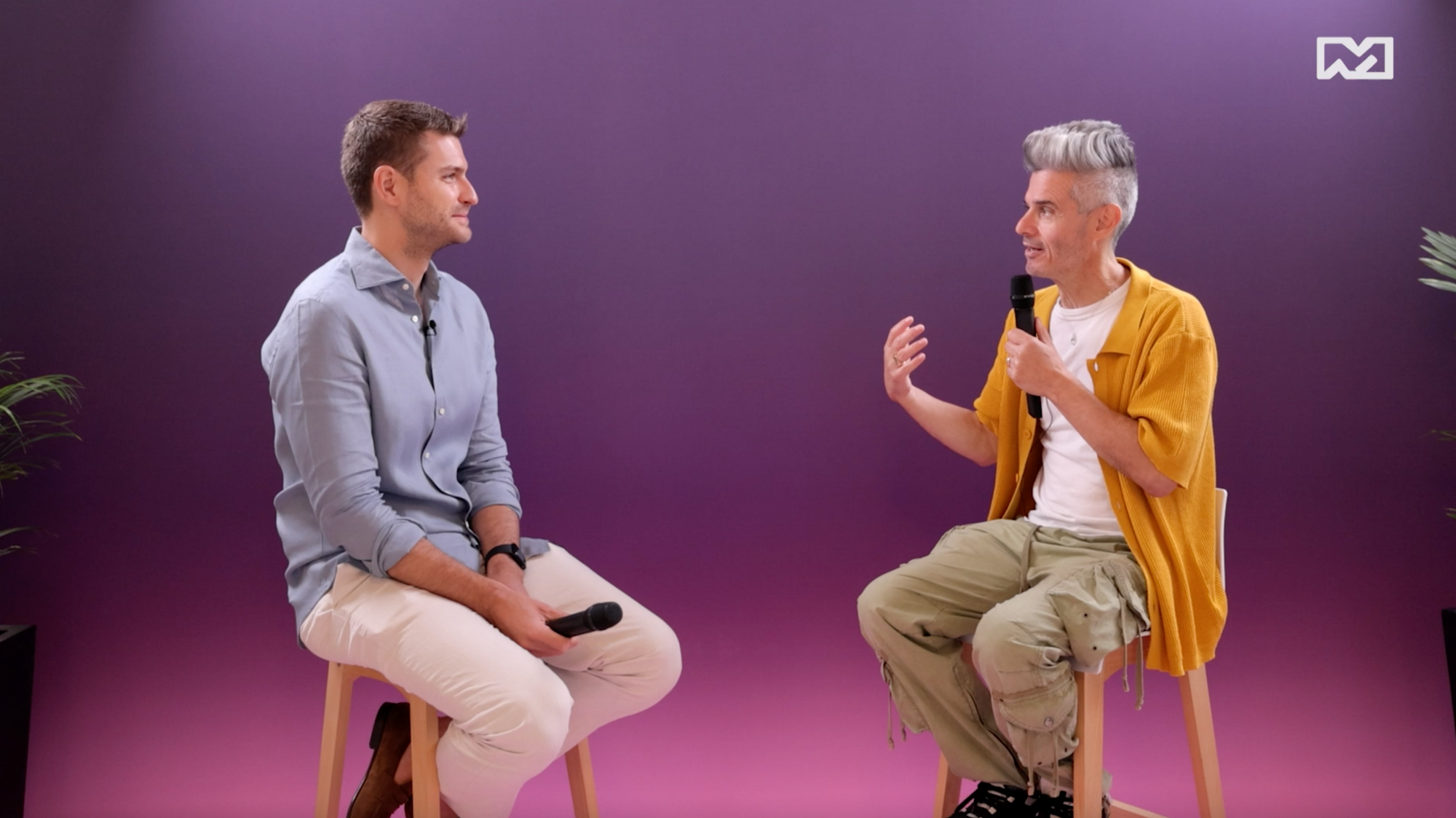Inside the Engine of Live Sports: Genius Sports’ Josh Linforth on Data, Ads, and Fans
Media Cartographer Evan Shapiro caught up with Josh Linforth, Chief Revenue Officer at Genius Sports, for a Big Brains conversation that pulled back the curtain on one of the most powerful data companies in sports.

Media Cartographer Evan Shapiro caught up with Josh Linforth, Chief Revenue Officer at Genius Sports, for a Big Brains conversation that pulled back the curtain on one of the most powerful—and least known—data companies in sports.
From powering the NFL’s official stats to creating real-time ad opportunities at peak fan moments, Genius Sports is reshaping how leagues, brands, and broadcasters engage with live sports. In this Q&A, Linforth explains how data is changing the game—from local sponsorships to personalized broadcasts—and why the next frontier of fan engagement is already here.
Evan Shapiro: Josh, you’re the Chief Revenue Officer at Genius Sports. For those unfamiliar, what does Genius do?
Josh Linforth: Genius Sports powers over 400 sports leagues around the world. We provide the technology that helps our league partners run the business of sports. At our core, we install data collection systems that capture play-by-play and statistical data on and off the field. We also help our partners understand their fan bases using traditional ad tech and audience data.
ES: You mentioned that the statistics of sport are intellectual property, and historically, leagues weren’t benefiting from the monetization of their data. How did Genius change that?
JL: That’s right. For years, arbitrageurs were collecting data at league venues without permission—basically like recording a film in a theater. The leagues weren’t benefiting. We work with leagues in an official capacity to collect that data and help them monetize it. But it's more than revenue—it’s about integrity. We're the official record of what happened during a game. Without official scores and stats, there's no reliable version of what actually occurred.
ES: Which leagues are you working with?
JL: In the U.S., we’re the official data partner for the NFL and NCAA. Globally, we partner with the Premier League, power officiating tech like semi-automated offside detection, and cover global basketball. The list goes on.
ES: You’re collecting data on gameplay and fans. But you’ve also found a way to use that data to help brands engage fans at the most intense moments. Can you explain that?
JL: Sure. Using computer vision, we collect about 10,000 data points per second on every player—in real time. These models can detect the intensity of a game and even predict what’s going to happen. For example, we can tell if a ball is going to score the second it leaves a player’s hand—before the fans know. This has huge implications for advertising. We can insert relevant ads just before moments of peak excitement, on both digital and linear platforms.
ES: So this also extends into sports betting?
JL: Absolutely. We power 800 sportsbooks around the world and support hundreds of thousands of events every year. Anywhere you see sports stats—apps, broadcasts, betting platforms—there’s a good chance Genius is behind it.
ES: Even with your scale, you’re still relatively unknown to the public. That’s surprising.
JL: Yeah, I joke that we’re the biggest ad tech and tech company most people have never heard of.
ES: I spoke with Horizon Media’s David Campanelli, who said that everywhere he goes, it's “sports, sports, sports.” It’s become the biggest ad category. You arguably have more data on sports than anyone has on anything. Where do you see the future of sports in entertainment heading?
JL: Brands are shifting. It used to be all about massive sponsorships. Now, we’re seeing smaller brands say, “I want in.” They want to support local high school or college teams. Genius makes it possible to advertise meaningfully at the local level using our data.
ES: So it’s like micro-influencer marketing—smaller scale, but deeper engagement.
JL: Exactly. It’s about community. If you can tap into that, you build powerful brand connections.
ES: What are some emerging trends in the way people are watching sports?
JL: Alt broadcasts are taking off. These are alternate views of live games—like ManningCast, NBA UK, or Prime Vision. There’s a hunger for deeper, more personalized experiences. Fans want more data, more angles, and different contexts.
ES: Live sports is one of the few remaining communal, real-time media experiences. But the personalization hasn’t caught up. Is that changing?
JL: Yes. Sports is the last frontier of personalization. Data is unlocking that. Fans will soon be able to customize broadcasts to follow individual players, switch to fantasy mode, betting mode, even Nickelodeon slime mode. All powered by our data.
ES: So despite the saturation, there’s still new ad inventory and engagement to unlock?
JL: Absolutely. I wouldn’t be surprised if we’re watching NFL games in Madden mode within five years. It may get more fragmented, but that fragmentation opens up new opportunities for engagement.
ES: In that kind of fragmented landscape, how do brands keep track of fans?
JL: We’ve built our own identity solution—FanHub ID—that integrates across fantasy platforms, score widgets, apps, and other endpoints. It gives us a unified view of fan behavior across the internet.
